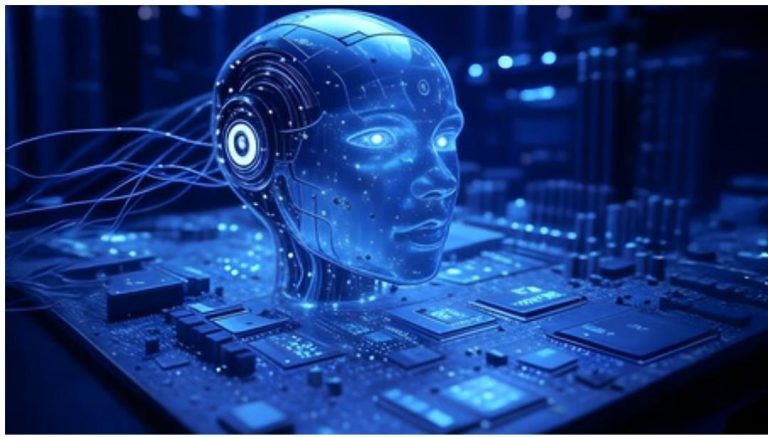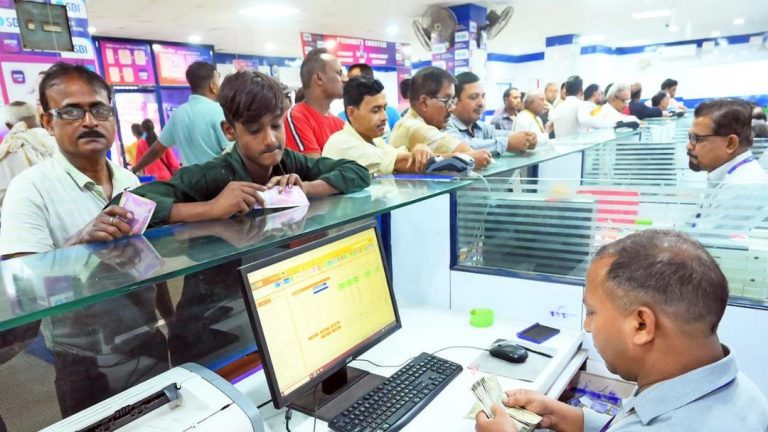
AI Tool Finds Optimal Polymer Recipes for Flexible Electronics
The development of flexible electronics has revolutionized the way we interact with technology, enabling the creation of bendable and foldable devices that can be integrated into various aspects of our daily lives. However, the production of high-quality electronic polymer films, which are the foundation of these devices, is a complex and challenging process. Researchers have now developed an innovative AI-powered robotic platform, Polybot, which uses artificial intelligence to discover optimal recipes for electronic polymer films. This breakthrough has the potential to accelerate the creation of advanced flexible electronics for a wide range of applications.
The Challenges of Developing Electronic Polymer Films
Electronic polymer films are used in a variety of applications, including flexible displays, sensors, and energy storage devices. To produce high-quality films, manufacturers must carefully control the composition of the polymer, as well as the processing conditions. However, this process is notoriously challenging, as it involves managing a multitude of complex variables, such as the type and amount of monomers used, the processing temperature, and the film thickness.
Traditional methods for developing electronic polymer films rely on trial and error, which can be time-consuming and costly. This approach often requires iterating through multiple iterations of recipe development, which can lead to the production of defective materials and lengthy development times. Furthermore, the optimization of polymer films is often a labor-intensive process, requiring the expertise of skilled researchers and technicians.
The Introducing Polybot: An AI-Powered Robotic Platform
To address the challenges associated with developing electronic polymer films, researchers have developed Polybot, an intelligent robotic platform that uses artificial intelligence to discover optimal recipes for electronic polymer films. Polybot is equipped with a high-precision robotic arm, which allows it to manipulate the polymerization process with unparalleled precision.
Polybot’s AI system is trained on a vast database of polymer recipes and processing conditions, which enables it to predict the optimal composition and processing conditions for a given application. This AI-powered approach allows Polybot to rapidly iterate through multiple recipe iterations, eliminating the need for manual trial and error.
The Benefits of Polybot
The development of Polybot has several benefits for the production of electronic polymer films. First and foremost, it enables the rapid optimization of polymer recipes, reducing the time and cost associated with traditional methods. Polybot’s AI system can analyze a wide range of variables, including the type and amount of monomers used, the processing temperature, and the film thickness, to identify the optimal recipe for a given application.
Secondly, Polybot’s automated approach minimizes the risk of human error, ensuring that the polymer films produced are of consistently high quality. This is particularly important in the development of advanced flexible electronics, where even minor defects can have significant consequences for device performance.
Finally, Polybot’s AI-powered approach enables the discovery of novel polymer recipes that may not have been possible using traditional methods. This has the potential to unlock new applications for electronic polymer films, including the development of next-generation flexible displays and energy storage devices.
The Future of Flexible Electronics
The development of Polybot has significant implications for the production of advanced flexible electronics. By enabling the rapid optimization of polymer recipes, Polybot has the potential to accelerate the development of new devices and applications.
In the future, we can expect to see the widespread adoption of Polybot technology in the production of electronic polymer films. This will enable the rapid development of new devices and applications, including flexible displays, sensors, and energy storage devices.
Conclusion
The development of Polybot, an AI-powered robotic platform, marks a significant breakthrough in the production of electronic polymer films. By using artificial intelligence to discover optimal recipes for electronic polymer films, Polybot has the potential to accelerate the creation of advanced flexible electronics for a wide range of applications.
As the technology continues to evolve, we can expect to see the widespread adoption of Polybot technology in the production of electronic polymer films. This will enable the rapid development of new devices and applications, unlocking new possibilities for flexible electronics and paving the way for a future of seamless, wearable, and interactive technology.
News Source:
https://researchmatters.in/news/ai-learns-make-better-electronic-polymer-materials-faster-ever






